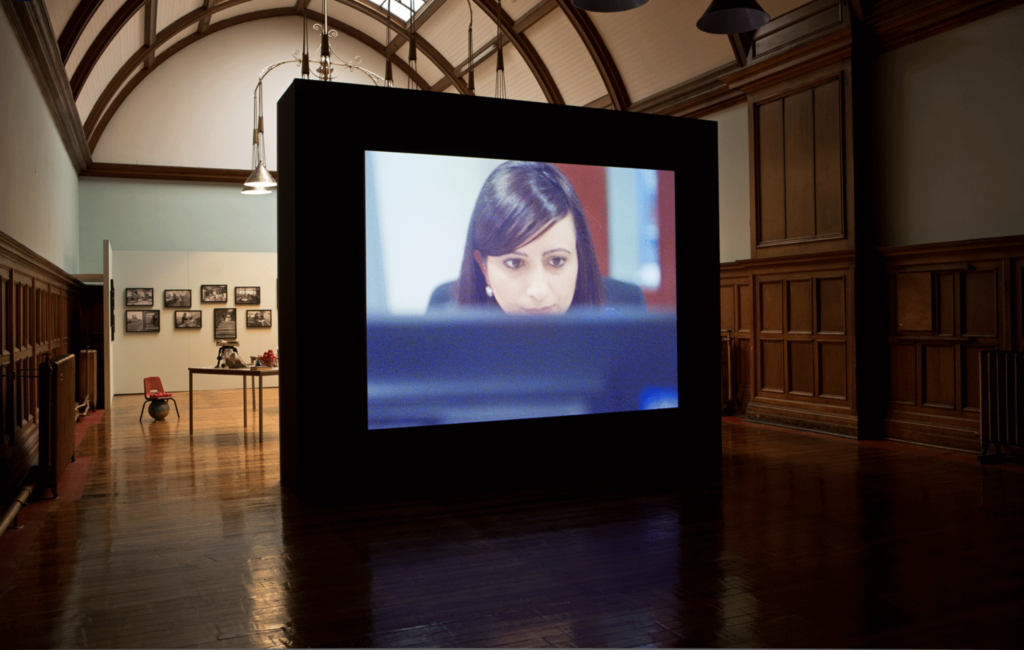Professor Kirsteen Macdonald’s lecture this week offered a new perspective on a question I raised in Week 7: “How can we reconstruct female experiences that have been erased by time and history through archives and voice?”
Hal Foster’s concept of the “archival impulse” reminds us that archives are not merely tools for reviewing the past, but also mechanisms for restructuring reality itself.
They have the potential to translate failed utopian imaginaries into new models of social relations (Foster, 2004).
Case Study: Home Economics (2021)
I was deeply inspired by the exhibition Home Economics (2021), which Professor Macdonald shared. The exhibition uses housework as a curatorial entry point, juxtaposing Franki Raffles’s archival footage of women’s labour with Margaret Salmon’s installation works.

Margaret Salmon Surplus installation in HOME ECONOMICS in the Billiard Room at The Pearce Institute © Ruth Clark
This project resonates strongly with the exhibition concept I proposed in Week 3, which focused on the idea of the “Second Shift”—where married women’s time is fragmented by domestic and caregiving responsibilities.
It prompted me to reflect that curating is not about reproducing “women of the past,” but rather about empathizing with and rewriting the time structures that remain unspoken and silenced.
Privacy and Archival Ethics
In addressing archival ethics, I draw on Claire Bishop’s emphasis in Artificial Hells on protecting the rights of participants—ensuring that all collected materials respect privacy and do not reduce individuals to mere content or raw data.
To this end, I will implement a strict consent and authorization protocol, along with robust privacy protection measures, to ensure that all archival materials are accompanied by clear contextual information and used with informed transparency.
Reference:
Franki Raffles, Margaret Salmon, Home Economics, 2021:https://glasgowinternational.org/2021/archive/franki-raffles-margaret-salmon/


Leave a Reply